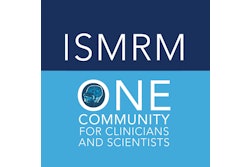Dear Women's Imaging Insider,
Breast density notification laws are intended to help women make informed screening decisions. But a new survey from North Carolina questions whether these laws help women with dense breast tissue get additional screening.
Fewer than two-thirds of breast imaging facilities in the state said they offered supplemental screening for women with dense breast tissue, according to a survey published in Cancer. And of those that did, fewer than half offered MRI or ultrasound. Read more in this edition's Insider Exclusive.
The exclusive isn't the only new story on dense breast tissue in the Women's Imaging Community. In a thought-provoking piece, lawyer Andrea Wolf makes the case for changing the language radiology uses to talk about "supplemental" or "additional" screenings for women with dense breasts.
"By using terms of 'supplement,' we are negating the importance of these vital tests," writes Wolf, CEO of the Brem Foundation to Defeat Breast Cancer.
In other Women's Imaging Community news, a recent study added weight to the belief that ductal carcinoma in situ (DCIS) is a life-threatening condition. Women with DCIS had rates of death from breast cancer three times greater than the general population, and those rates were even higher for women under the age of 40 and Black women.
The Women's Imaging Community has also been filled with buzz about breast MRI for screening and diagnostic imaging.
A systematic review presented at the recent International Society for Magnetic Resonance in Medicine (ISMRM) meeting found the performance of shorter MRI was comparable to the full protocol. Researchers also discussed the technical advances making breast MRI quicker, more accurate, and less costly at the Society for MR Radiographers & Technologists (SMRT) annual meeting.
Breast MRI even led to COVID-19 treatment for a 68-year-old woman in England. The reading radiologist spotted unusual pulmonary findings on the patient's MRI scan for breast cancer staging.
The ISMRM and SMRT virtual presentations I attended make me believe we're only just beginning to see how powerful MRI may be for breast imaging. With further hardware and software advancements, I wouldn't be surprised if MRI becomes an even more prominent breast imaging modality in the next few decades.



















